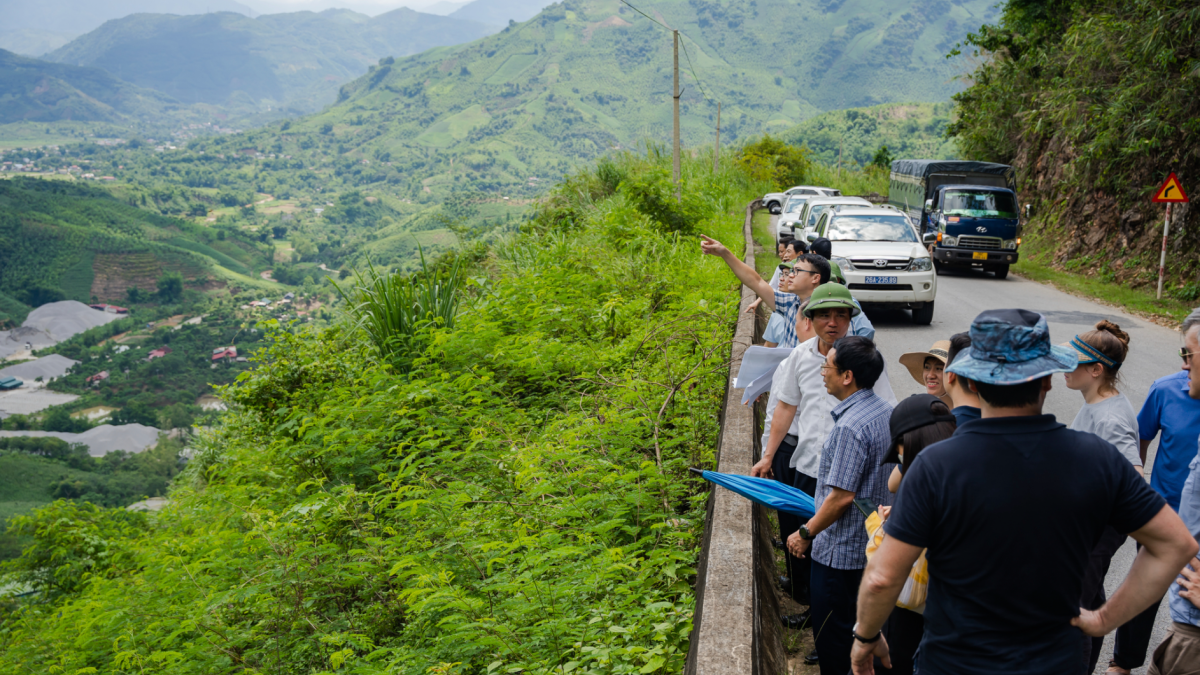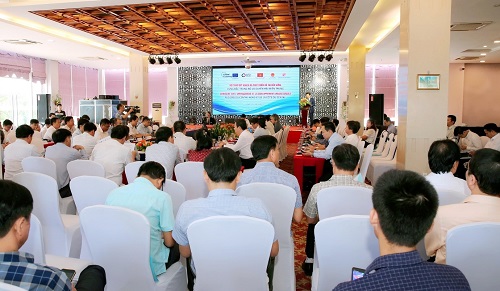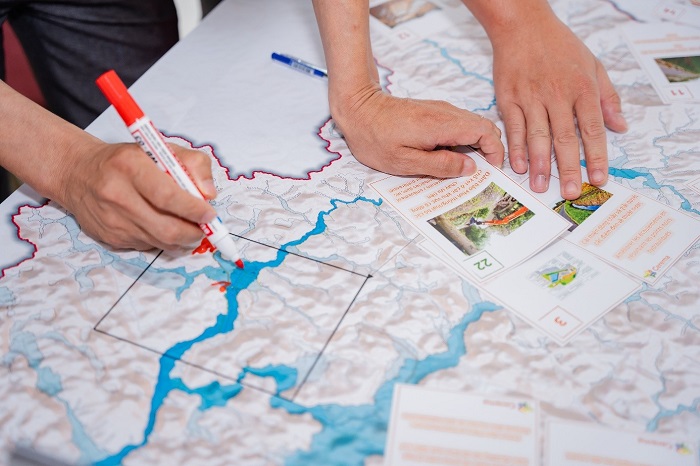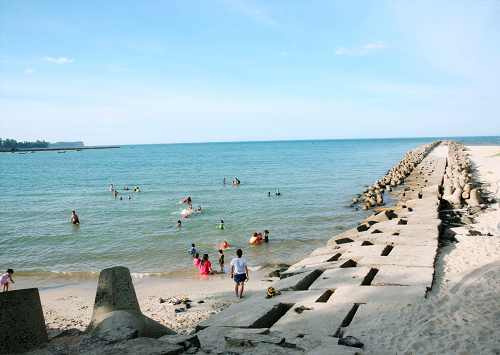
On behalf of AFD in Vietnam, Cerema has helped to organize seminars for local public decision-makers as part of resolution number 6 of the Vietnamese Politburo aimed at better integrating climate change into urban development. The main objective is to support the development of action plans for cities to implement the Paris Agreement on climate change and Vietnam's commitments at COP26, by promoting the integration of climate change resilience and adaptation elements into planning, particularly with regard to major natural risks.
3 provinces, a wide range of natural hazards to consider
 Under the impetus of and commissioned by Cerema , specialists from Cerema helped to define, organise and run 3 thematic seminars in a hybrid format, each lasting 4 hours, aimed at the heads of the provinces and decentralised ministries concerned, in three provinces representative of the diversity of Vietnam's territories:
Under the impetus of and commissioned by Cerema , specialists from Cerema helped to define, organise and run 3 thematic seminars in a hybrid format, each lasting 4 hours, aimed at the heads of the provinces and decentralised ministries concerned, in three provinces representative of the diversity of Vietnam's territories:
- The city and province of Sơn La, located in the mountains of the north-west, are faced with strong run-off phenomena and flooding in a karstic context,
- The political and technical frameworks for taking account of natural risk in France were presented and discussed, illustrated by French case studies representative of the areas hosting the seminars (mid-mountain and hilly regions of the South-West, Gironde estuary and Charente-Maritime coastline). Local projects were also discussed, which could be inspired by the French case studies.
- A participatory workshop was held to help participants better understand the levers for action presented.

Each seminar was preceded by a field visit, providing an opportunity to put the content of the presentations into context and to discuss concrete projects directly with local managers.
Seminars on the levers of adaptation

The first reminders of the definitions of risk, well known by the participants, were an opportunity to underline the possibilities of action on all the components of risk and not only on the mitigation of the hazard.
The focus on hazards and climate change focused on a number of major ideas, such as the notion of a 100-year baseline event for taking risk into account, the consensus being built for the pessimistic scenario study (RCP8.5), the importance of recognising and accepting the degree of uncertainty associated with climate projections and the way in which they are produced, etc. The discussions underlined the vital importance in Vietnam of stepping up action in the "post-crisis" period: reacting to and analysing events, providing feedback and learning the right lessons to avoid a repeat of the disaster.
The 7 pillars of prevention were discussed, with the important idea that it is necessary to act in a balanced and decompartmentalised way (cross-disciplinary dialogue between the various stakeholders) on all these pillars for an effective risk management policy. This cross-functional and balanced approach emerged as a major challenge for Vietnam in achieving the objectives of Resolution No. 06 effectively and operationally.
The 7 pillars of risk prevention:
- Knowledge
- Monitoring
- Preventive information
- Taking into account in planning
- Mitigation
- Emergency organisation
- Feedback
Time was devoted to the concepts of scales of action, interdependence and coherence of these scales, by insisting on the notion of risk basin, to express some strong messages:
For more information:
All the materials and videos from the events are available on a dedicated website:
Seminars on risks in July 2023
In July 2023, Cerema held a series of seminars in Vietnam on the subject of risks: workshop in Son La (mountains in the north-west), where there are high levels of run-off and flooding in a karstic context, and in Dong Ha (central coastal region), where the area is exposed to both flooding and typhoons (wind and rain), typhoons (winds and intense rainfall) and retreating coastline, and Hau Giang (Mekong delta), which is subject to run-off (rainfall and lack of infiltration due to the outcropping water table) and river and river-sea flooding, as well as subsidence due to pumping into the water table.
The seminars, which were organised on behalf of the French Development Agency (AFD), were a great success, with numerous articles in the local press. They provided an opportunity to showcase French experience of the relationship between natural disaster risk management, climate change and urban planning in the context of a country with sustained economic growth.
On these occasions, various recommendations and ideas were put forward for adapting and developing local standards. On November 8, the Vietnamese Ministry of Construction organised the Vietnam Urban Forum, an annual conference on the country's urban development trajectories. This year, taking advantage of the positive feedback from the July seminars, AFD took part in the plenary session attended by the Minister and co-organised a thematic workshop on adapting cities to climate change.


